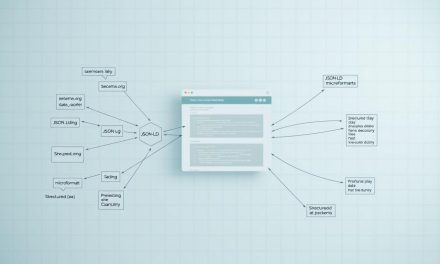Understanding your customers and competition is vital for business success. Market research provides the data-driven insights needed to make smart decisions.
This powerful analytical tool helps companies identify opportunities and gain competitive advantages. From startups to large corporations, quality research transforms how businesses operate.
Professional analysis delivers exceptional value. With over 132,817 client reviews rating these services at 4.9 out of 5 stars, the quality speaks for itself.
These comprehensive services cover everything from data collection to strategic recommendations. They adapt to various project structures and business needs.
This guide will show you how to find the right expert for your specific requirements. Discover how professional market analysis can drive your business growth.
Table of Contents
Key Takeaways
- Market research provides essential data for informed business decisions
- Professional analysis helps identify market opportunities and competitive advantages
- Quality research services receive exceptional client satisfaction ratings
- Services are adaptable to different industries and business sizes
- Comprehensive analysis includes data collection and strategic recommendations
- Various project structures are available to suit different business needs
- Professional insights are crucial for growth in today’s competitive environment
What is Market Research and Why Your Business Needs It
In today’s dynamic business environment, data-driven decision making is no longer optional. Market research provides the essential foundation for understanding your competitive landscape and customer needs.
This comprehensive analytical approach helps companies uncover valuable insights about their target audience. It transforms raw information into strategic intelligence for business growth.
Understanding Market Research Fundamentals
Market research involves systematic data collection and interpretation. It examines customer behaviors, preferences, and market trends.
The process typically includes three core components:
- Data gathering through surveys, interviews, and observation
- Careful analysis of collected information
- Strategic interpretation for business applications
This methodology helps identify optimal customer locations for targeted campaigns. It reveals patterns that might otherwise remain hidden.
Professional analysis transforms numbers into actionable strategies. This approach minimizes risks and maximizes opportunities.
The Strategic Value of Professional Market Analysis
Quality market analysis delivers exceptional strategic value. It provides the clarity needed for informed business decisions.
Experienced professionals can identify emerging trends before competitors. They help businesses anticipate market shifts and adapt accordingly.
Detailed reports based on customer feedback offer incredible insights. These documents guide expansion strategies and product development.
Understanding market fundamentals reveals competitive advantages. It shows where your business excels and where improvements are needed.
As highlighted in strategies for adapting to market changes, proper analysis helps businesses stay competitive through innovation and customer understanding.
Professional market intelligence turns complex data into clear direction. It provides the roadmap for sustainable business growth and success.
Benefits of Hiring a Freelance Market Researcher
Businesses today discover remarkable benefits when engaging external specialists for their data-driven projects. These professionals bring unique advantages that can significantly enhance your company’s decision-making process.
The right analytical partner delivers more than just data. They provide strategic insights that drive growth and innovation.
Time Efficiency and Flexibility Advantages
Outsourcing your information gathering needs saves valuable internal resources. Companies regain countless hours previously spent on data collection.
External professionals offer exceptional scheduling flexibility. They accommodate evening and weekend work to meet tight deadlines.
Urgent projects receive immediate attention. These specialists can begin work quickly when time-sensitive opportunities arise.
This approach eliminates lengthy hiring processes. You gain instant access to skilled talent without permanent commitments.

Access to Specialized Knowledge and Expertise
Seasoned professionals bring deep industry-specific understanding. Their specialized background provides insights unavailable internally.
These experts possess advanced analytical techniques. They employ sophisticated methods that yield more accurate results.
Their cross-industry experience offers valuable comparative perspectives. They identify patterns and opportunities others might miss.
You benefit from cutting-edge methodologies without training costs. Their current knowledge keeps your business ahead of trends.
Fresh Perspectives and Innovative Ideas
External analysts provide objective viewpoints unclouded by internal biases. They see your business through customer eyes rather than company lenses.
Their outside position sparks creative approaches to challenges. They ask questions internal teams might not consider.
These professionals introduce innovative thinking from diverse industries. They blend best practices from various sectors.
Their recommendations often reveal unexpected opportunities. They transform raw data into actionable growth strategies.
Results-Driven Approach to Market Analysis
Project-based professionals maintain intense focus on delivering measurable outcomes. Their reputation depends on achieving concrete results.
They prioritize timely completion within budget constraints. Cost-effectiveness becomes their natural advantage.
Quality standards remain exceptionally high throughout every project. Their future work depends on current performance.
These specialists translate complex information into clear business recommendations. They bridge the gap between data and decision-making.
The combination of these benefits creates powerful value for organizations. Companies gain strategic advantages while maintaining operational flexibility.
Types of Market Research Services Offered
Modern businesses gain powerful advantages through specialized analytical services. These comprehensive offerings transform complex information into clear business intelligence.
Professional providers deliver tailored solutions for specific business needs. Each service category addresses different aspects of market understanding.
Demographic and Customer Data Collection
Detailed demographic services uncover vital customer information. They reveal audience characteristics and purchasing patterns.
Advanced collection techniques include:
- Targeted surveys across multiple channels
- In-depth interview sessions with key segments
- Behavioral observation and tracking analysis
- Purchase pattern examination across demographics
These methods provide deep insights into customer preferences. Businesses understand exactly what drives their audience’s decisions.
Competitive Landscape Analysis
Thorough competitive examination identifies market positioning strengths. It reveals where your business stands against rivals.
This analysis covers critical areas:
- Direct competitor product and service comparison
- Market share distribution across the industry
- Pricing strategy evaluation and positioning
- Strength and weakness assessment for all players
Companies gain clear understanding of their competitive advantages. This knowledge guides strategic planning and resource allocation.
Consumer Trend Identification and Prediction
Trend analysis services detect emerging patterns before they become obvious. They help businesses anticipate market shifts and opportunities.
Sophisticated prediction methodologies include:
- Social media sentiment analysis and monitoring
- Industry report synthesis and pattern recognition
- Consumer behavior tracking across time periods
- Economic indicator correlation with market changes
As highlighted in strategies for adapting to market changes, anticipating shifts helps businesses stay ahead through innovation and customer understanding.
Marketing Campaign Optimization Strategies
Campaign analysis services maximize marketing effectiveness and ROI. They transform underperforming efforts into successful initiatives.
Optimization approaches include:
- Channel performance measurement and comparison
- Audience response analysis across demographics
- Message effectiveness testing and refinement
- Budget allocation optimization based on results
These strategies ensure marketing resources deliver maximum impact. Companies achieve better results with smaller investments.
Each service category works together to provide complete market understanding. Businesses gain comprehensive intelligence for informed decision-making.
Essential Skills of Professional Market Researchers
Successful market analysis requires a diverse set of specialized capabilities that transform raw information into strategic intelligence. These experts combine technical proficiency with business acumen to deliver comprehensive insights.
Their toolkit includes both methodological expertise and communication abilities. This combination ensures research findings translate into actionable business strategies.

Qualitative and Quantitative Research Methods
Top analysts master both qualitative and quantitative approaches. Each method serves different purposes in understanding market dynamics.
Qualitative techniques explore the « why » behind consumer behavior. They include in-depth interviews, focus groups, and observational studies.
These methods reveal emotional drivers and hidden motivations. They provide context that numbers alone cannot capture.
Quantitative methods measure the « what » and « how much » of market phenomena. Surveys, statistical analysis, and data modeling fall into this category.
This approach delivers measurable, projectable results across large populations. It provides the statistical confidence needed for major business decisions.
| Qualitative Methods | Quantitative Methods |
|---|---|
| Focus groups and discussions | Structured surveys |
| In-depth individual interviews | Statistical analysis |
| Observational field studies | Data modeling techniques |
| Online community engagement | Large sample measurements |
| Ethnographic research | Metric-driven reporting |
Data Analysis and Interpretation Expertise
Raw information becomes valuable through skilled interpretation. Professionals identify patterns and correlations that others might miss.
They use advanced analytical tools to process complex datasets. This transforms numbers into meaningful business intelligence.
Interpretation skills bridge the gap between data and decision-making. Experts contextualize findings within industry trends and competitive landscapes.
Strategic Planning and Report Development
Research findings need clear presentation to drive action. Professionals develop comprehensive reports that highlight key insights.
Strategic planning capabilities help translate data into business recommendations. This includes identifying opportunities and potential risks.
Effective reporting combines visual elements with concise explanations. It makes complex information accessible to diverse audiences.
As demonstrated in our case studies, proper analysis leads to successful market adaptation and growth strategies.
Project Management and Communication Skills
Successful research requires meticulous project coordination. Professionals ensure studies stay on schedule and within budget.
Communication abilities are essential throughout the process. This includes client collaboration and final presentation delivery.
These skills ensure research objectives align with business goals. They maintain focus on delivering actionable outcomes.
Additional specialized capabilities include brand strategy development and design research applications. These complement core research methodologies.
The combination of these skills creates comprehensive market intelligence. It transforms data collection into strategic business advantage.
How to Find the Right Freelance Market Researcher
Finding the perfect analytical partner requires careful consideration. The selection process determines the quality of insights you’ll receive.
Successful projects begin with thorough candidate evaluation. This ensures your investment delivers maximum value.
Evaluating Researcher Profiles and Portfolios
Detailed profile examination reveals crucial qualifications. Look for comprehensive skill descriptions and project history.
Portfolios demonstrate practical application of knowledge. They show how professionals approach complex challenges.
Key elements to assess include:
- Educational background and certifications
- Previous project types and complexity levels
- Methodological approaches and tools used
- Industry experience and specialization areas
Technical skills should match your project requirements. Verify capabilities through concrete examples.
Checking Reviews and Client Testimonials
Client feedback provides authentic performance insights. It reveals how professionals handle real-world projects.
Look for patterns in review content. Consistent praise for specific strengths indicates reliable capabilities.
Testimonials often highlight:
- Communication effectiveness and responsiveness
- Deadline adherence and project management
- Quality of final deliverables and insights
- Problem-solving abilities during challenges
Multiple positive reviews across different projects indicate consistent performance. This reliability matters for important analysis work.
Assessing Industry-Specific Experience
Industry knowledge dramatically impacts research effectiveness. Professionals understand sector-specific nuances and terminology.
Relevant background ensures faster project initiation. It reduces learning curves and accelerates insight generation.
Experience evaluation should consider:
| Experience Level | Benefits | Considerations |
|---|---|---|
| Beginner (1-2 years) | Fresh perspectives, competitive pricing | May need more guidance, limited specialized knowledge |
| Intermediate (3-5 years) | Balanced expertise and adaptability | Good for standard projects, may lack niche experience |
| Expert (5+ years) | Deep industry knowledge, advanced methodologies | Higher investment, best for complex projects |
| Specialized Consultant | Niche expertise, cutting-edge insights | Premium pricing, ideal for specific challenges |
Many platforms offer talent team assistance. These experts help match your requirements with qualified professionals.
They can create detailed project briefs and shortlist candidates. This service ensures you find the perfect match efficiently.
Thorough credential verification completes the selection process. It guarantees capabilities align with project needs.
The Hiring Process: From Brief to Project Start
Effective project initiation begins with a well-crafted brief that captures your vision. This foundation ensures everyone understands your goals from day one.
A smooth hiring process creates productive partnerships. It transforms complex projects into successful collaborations.
Creating an Effective Project Brief
Comprehensive briefs attract quality professionals who understand your needs. They serve as roadmaps for successful outcomes.
Structure your document with these essential elements:
- Clear objectives and desired outcomes
- Specific deliverables and quality standards
- Timeline expectations and availability requirements
- Budget parameters and payment preferences
Include background context about your business and industry. This helps candidates understand your unique situation.
Be specific about communication preferences and reporting frequency. These details prevent misunderstandings later.
Reviewing Proposals and Selecting Candidates
Multiple proposals give you valuable options to compare. Each offer presents different approaches and value propositions.
Evaluation criteria should include:
- Relevant experience with similar projects
- Methodology alignment with your objectives
- Budget compatibility and value offered
- Communication style and responsiveness
Platforms like Kolabtree share multiple quotations for your review. You maintain complete freedom to choose the best fit.
Thorough candidate evaluation ensures perfect matches for your requirements. It’s worth investing time in this selection phase.
Setting Clear Milestones and Expectations
Well-defined milestones create natural progress checkpoints. They keep projects on track and within scope.
Establish expectations for:
- Delivery schedules and review periods
- Communication frequency and update methods
- Quality standards and approval processes
- Collaboration tools and file sharing methods
Payment structures offer flexibility for different project types. You can choose fixed-price or hourly arrangements.
Milestone payments protect both parties throughout the engagement. You only pay for completed work that meets expectations.
Pre-pay for the next milestone. Approve deliverables only if quality meets your expectations. If unsatisfied, you’ll receive a refund.
This approach ensures risk-free collaboration from start to finish. Your investment remains protected throughout the entire process.
Final contract establishment formalizes all agreed terms. It creates a solid foundation for productive work ahead.
Real Projects Completed by Expert Market Researchers
Seeing actual results from analytical projects helps businesses understand the tangible value of professional insights. These completed initiatives demonstrate how data transforms into strategic advantages across various industries.
Successful analytical work delivers measurable outcomes that drive growth. Companies achieve remarkable improvements through well-executed studies and comprehensive reporting.
Customer Behavior Analysis Case Studies
A leading e-commerce company struggled with cart abandonment rates. They engaged analytical specialists to examine user behavior patterns.
The project revealed crucial insights:
- Unexpected shipping costs caused 42% of abandonments
- Complex checkout processes frustrated 28% of users
- Mobile interface issues affected 19% of transactions
Implementation of these findings reduced abandonment by 37% within three months. Revenue increased significantly through improved conversion rates.
Market Expansion Strategy Success Stories
A European fashion brand planned North American expansion. They needed comprehensive competitive intelligence and consumer preference data.
The analytical team delivered:
- Detailed competitor pricing analysis across regions
- Consumer preference mapping for different demographics
- Optimal retail location recommendations
- Cultural adaptation strategies for marketing messages
This strategic guidance enabled successful market entry. The brand achieved 125% of projected first-year sales targets.
Product Development Research Examples
A tech startup developed innovative smart home devices. They required deep consumer insight before finalizing product features.
Extensive studies identified:
- Priority features across different user segments
- Acceptable price points for various functionality levels
- Installation simplicity as the top purchase driver
- Privacy concerns requiring addressed solutions
The product launched with perfect market alignment. It became the category leader within six months of introduction.
These examples demonstrate how professional analytical work creates real business value. Each project delivered actionable intelligence that drove measurable success.
« The consumer behavior insights transformed our approach to digital marketing. We achieved 63% higher engagement rates through personalized campaigns based on these findings. »
Across industries, quality analytical work produces exceptional results. Businesses gain competitive advantages through data-driven decision making.
Understanding Market Research Costs and Pricing
Smart budgeting for analytical projects helps businesses maximize their investment returns. Knowing how pricing works ensures you get quality insights within your financial plan.

Different payment approaches suit various project types and scopes. The right choice depends on your specific needs and timeline.
Hourly vs. Fixed-Price Project Structures
Hourly arrangements work well for ongoing or flexible projects. You pay for actual time spent on your analysis.
This approach offers transparency for evolving requirements. It adapts easily if project scope changes during execution.
Fixed-price structures provide cost certainty from the beginning. You know exactly what the final investment will be.
This model works best for well-defined projects with clear deliverables. Both parties agree on scope and price upfront.
| Hourly Pricing | Fixed Pricing |
|---|---|
| Flexible for changing requirements | Predictable total cost |
| Pay only for actual work time | Clear scope definition needed |
| Suitable for ongoing projects | Ideal for one-time initiatives |
| Transparent time tracking | Budget certainty from start |
Factors Influencing Research Project Costs
Several elements affect your final investment in quality analysis. Understanding these helps plan your budget effectively.
Project complexity significantly impacts pricing. More detailed studies require greater resources and expertise.
Timeline urgency can increase costs for faster results. Tight deadlines often require dedicated focus and resources.
Specialist experience levels command different rates. Highly skilled professionals bring deeper insights but cost more.
Industry specialization affects pricing too. Niche expertise delivers targeted value at premium rates.
Data collection methods influence overall expenses. Sophisticated techniques cost more but yield better results.
Budgeting for Quality Market Analysis
Effective financial planning ensures you receive excellent insights within your means. Strategic allocation maximizes your return on investment.
Current rates vary by professional type and experience level. The average across the discipline was £557 in recent years.
Milestone payment systems protect your investment throughout the project. You pre-pay for the next phase only after approving completed work.
This approach ensures quality meets your expectations at every stage. If unsatisfied, you receive a refund for that milestone.
Value-based pricing considers the strategic worth of insights gained. Exceptional analysis often delivers returns far exceeding its cost.
« Our $15,000 investment in consumer analysis generated over $200,000 in additional revenue through improved targeting. »
Smart budgeting balances cost considerations with quality needs. The right investment delivers insights that drive significant business growth.
Choosing the Right Platform for Hiring Researchers
Selecting the perfect digital space to connect with analytical experts makes all the difference. The ideal platform streamlines your search while protecting your sensitive information.
Different websites offer unique advantages for finding skilled professionals. Your choice impacts both quality and security throughout the project.
Evaluating Freelance Marketplaces
General platforms provide access to diverse talent pools across multiple fields. They offer broad selection but require careful vetting.
Key evaluation factors include:
- Review systems that verify past performance
- Rating mechanisms that highlight top performers
- Communication tools that facilitate clear discussions
- Project management features that organize workflows
Bid comparison systems help you assess multiple proposals efficiently. They display different approaches and pricing options side by side.
Platform reputation matters greatly for quality assurance. Established websites with positive user feedback typically deliver better results.
Specialized Platforms for Research Professionals
Niche websites focus specifically on analytical and data experts. These specialized spaces attract highly qualified professionals.
Kolabtree stands out as the leading online marketplace for qualitative experts. Their platform connects businesses with precisely matched talent.
Specialized platforms offer distinct advantages:
- Pre-vetted professionals with verified credentials
- Industry-specific matching algorithms
- Dedicated support teams understanding research needs
- Quality-focused community standards
These focused environments simplify the hiring process significantly. You spend less time filtering and more time collaborating.
Security and Confidentiality Considerations
Protecting sensitive business information remains paramount throughout any project. Robust security measures ensure peace of mind.
Confidentiality assurance includes multiple protective layers:
- Default confidentiality clauses in terms and conditions
- Non-disclosure agreement options before project discussions
- Intellectual property protection mechanisms
- Secure data transmission protocols
Project privacy features let you control visibility carefully. You can restrict who sees your project and sends proposals.
Payment security systems safeguard financial transactions throughout collaborations. Milestone-based payments protect both parties.
« The platform’s security features gave us confidence to share sensitive market data. Their confidentiality measures exceeded our expectations. »
Comprehensive protection allows focus on insights rather than worries. You collaborate freely while your information stays secure.
Success Metrics: Measuring Research Impact
Proving the value of your analytical investment transforms how you view data-driven decisions. It shows exactly how information gathering contributes to your bottom line.
Clear measurement frameworks help justify future projects. They demonstrate tangible returns from your strategic intelligence efforts.

Key Performance Indicators for Market Research
Specific metrics track how well your analysis performs. These indicators measure both process efficiency and outcome quality.
Common KPIs include:
- Project completion rates against scheduled timelines
- Budget adherence percentages throughout the work
- Stakeholder satisfaction scores with final deliverables
- Insight accuracy rates when validated against real outcomes
Time performance metrics show how efficiently projects run. They reveal whether deadlines are met consistently.
Budget metrics track financial discipline. They ensure resources are used optimally throughout the analysis.
Translating Insights into Business Outcomes
Great findings mean little without practical application. The real value comes from implementing what you learn.
Effective translation methods include:
- Action planning sessions with implementation teams
- Clear responsibility assignments for each recommendation
- Progress tracking systems for adopted suggestions
- Impact measurement of changes made from insights
Strategic decisions improve when based on solid intelligence. Brand positioning, media spending, and product development all benefit.
As highlighted in proven marketing strategies, data-driven approaches consistently outperform generic methods long-term.
Continuous improvement processes keep your business adapting. They ensure research findings drive ongoing optimization.
ROI Calculation for Research Investments
Calculating return on investment proves your analysis was worth the cost. It compares what you spent against what you gained.
Simple ROI formulas work well:
(Gain from Investment – Cost of Investment) / Cost of Investment
For example: A $10,000 project that generates $50,000 in new revenue delivers 400% ROI.
Long-term impact assessment looks beyond immediate gains. It measures sustained improvements over months or years.
Actionable insight delivery should be tracked through implementation rates. The percentage of recommendations adopted shows real value.
Success measurement frameworks assess both quantitative and qualitative benefits. They capture financial gains and strategic advantages.
Proper evaluation turns analysis from cost to investment. It demonstrates clear value for every dollar spent on intelligence gathering.
Best Practices for Working with Freelance Researchers
Successful partnerships with external specialists require thoughtful approaches and clear frameworks. These strategies ensure your projects run smoothly and deliver exceptional results.
Establishing strong working relationships creates lasting value for your business. The right practices transform one-time projects into ongoing collaborations.
Establishing Effective Communication Channels
Clear communication forms the foundation of successful remote work. It keeps everyone aligned and prevents misunderstandings.
Choose tools that match your team’s preferences and needs. Popular options include Slack for messaging and Zoom for video meetings.
Set expectations for response times and availability. This ensures timely updates and smooth progress.
Regular check-ins maintain project momentum. Weekly meetings help address questions quickly.
Document important decisions and action items. Shared notes keep everyone accountable.
Managing Remote Collaboration Successfully
Effective remote management requires structure and flexibility. It balances clear guidelines with adaptability.
Create shared project spaces using tools like Trello or Asana. These platforms organize tasks and deadlines visually.
Establish clear milestones with specific deliverables. This provides natural progress checkpoints.
Use time management techniques like the Pomodoro method. These approaches maintain focus during independent work.
Celebrate achievements and completed phases. Recognition boosts motivation and team spirit.
Ensuring Data Security and IP Protection
Protecting sensitive information remains crucial throughout any project. Security measures safeguard your business interests.
Platforms like Kolabtree include default confidentiality clauses. Their terms and conditions automatically protect your data.
Non-disclosure agreements provide additional security layers. These legal documents prevent unauthorized information sharing.
Secure file-sharing platforms encrypt your documents. They prevent access by unauthorized parties.
Intellectual property protection ensures your ideas remain yours. Clear agreements define ownership from the beginning.
| Security Measure | Protection Level | Implementation |
|---|---|---|
| Confidentiality Clauses | Basic Protection | Automatic in platform terms |
| Non-Disclosure Agreements | Enhanced Security | Customizable legal documents |
| Encrypted File Sharing | Data Protection | Secure platform features |
| IP Assignment Agreements | Full Ownership | Project-specific contracts |
Regular security audits ensure continued protection. They identify potential vulnerabilities before problems occur.
Payment systems should also include security features. Protected transactions prevent financial risks.
As highlighted in essential skills for independent professionals, security awareness is crucial for successful remote collaborations.
Quality assurance processes maintain high standards throughout projects. They ensure deliverables meet your expectations.
Clear conflict resolution methods address issues promptly. They prevent small problems from becoming major obstacles.
Building long-term relationships with reliable specialists creates consistent quality. Trust grows through repeated successful collaborations.
« The security features gave us complete confidence in sharing sensitive market data. Their protection measures exceeded our expectations throughout the project. »
These practices create productive and secure working relationships. They ensure your projects deliver maximum value with minimum risk.
Conclusion
Investing in professional market analysis brings clear advantages to any business. It turns complex data into actionable strategies for growth.
Our global team delivers outstanding results across industries. They provide the expertise needed for informed decisions.
Quality research offers a strong return on investment. It helps identify opportunities and drive development.
Take the next step toward business success. Leverage these insights for competitive advantage and future growth.
FAQ
What is market research and why is it important for my business?
Market research involves gathering and analyzing information about your target audience, competitors, and industry. It helps you make informed decisions, understand customer needs, and stay ahead of trends, ultimately driving growth and reducing risks.
How can hiring a freelance market researcher benefit my company?
A freelance market researcher offers flexibility, specialized skills, and cost-effective solutions. They bring fresh insights and can focus entirely on your project, delivering tailored results without the overhead of a full-time employee.
What types of services do market researchers typically provide?
Services range from demographic studies and competitive analysis to trend forecasting and campaign optimization. Researchers help identify opportunities, refine strategies, and support product development with actionable data.
What should I look for when hiring a market research professional?
Focus on their experience, portfolio, and client feedback. Look for expertise in your industry, strong analytical skills, and a proven track record of delivering clear, impactful reports.
How are market research projects usually priced?
Pricing can be hourly or fixed-rate, depending on the project scope. Factors like complexity, timeline, and data collection methods influence costs. It’s best to discuss your budget and needs upfront for transparency.
How do I ensure successful collaboration with a freelance researcher?
Establish clear communication, set milestones, and use secure tools for sharing sensitive information. Regular updates and mutual respect for deadlines and confidentiality help ensure a smooth partnership.





